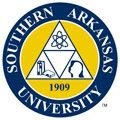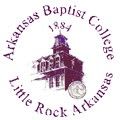Best Arkansas Colleges and Universities

Arkansas is home to more than 45 institutions of higher education. Among these choices are ten four-year universities, 22 community colleges and 12 private schools serving nearly 180,000 students. While each college has its own merits, some rise to the top. On this page, prospective students can find and begin researching Arkansas colleges that provide the best overall educational value. Also provided is helpful information about college planning programs, an analysis of college and living costs, and an overview of Arkansas' major college cities.
Arkansas College Leaderboard: Rankings
To evaluate their educational value, we've ranked colleges in Arkansas empirically on traits like tuition costs, student-to-teacher ratio, graduation rate, earnings after college, and others. While features students prioritize most is purely subjective, analyzing all of these factors as a whole can show a college's overall quality. See which two- and four-year Arkansas colleges made the final cut in this year's rankings.
Rankings Methodology
- Located in Arkansas
- Public or private not-for-profit
- Institutionally accredited
- At least 10 total programs
- Median annual alumni earnings 10 years after entering the college
- In-state tuition and fees for undergraduates
- Student/teacher ratio
- 6-year graduation rate
- % of students receiving institutional financial aid (first-time, full-time undergrads)
- Average amount of institutional aid awarded per student (first-time, full-time undergrads)
- Availability of placement services upon completion
- Availability of academic/career counseling services
- Availability of employment services
- 3-year student cohort loan default rate
Integrated Postsecondary Education Data System (IPEDS): National Center for Education Statistics
Latest 'Final Release' data available as of Fall 2016 College Scorecard: U.S. Department of Education
2-Year Programs
4-Year Programs
Search & Compare Colleges in Arkansas
Choosing a college or university should methodical: one must be deliberate in their research to avoid being overwhelmed. This search tool lets prospective students narrow their search for Arkansas colleges according to criteria such as enrollment and tuition figures, program availability, and city location.
College Planning and Support Programs in Arkansas
Arkansas ranked 36th in the nation in K-12 achievement as of January 2015. The state's academic institutions, private organizations and others are working hard to improve this ranking. Students from all backgrounds need equal access to information, and opportunity gaps must close to increase the number of college-educated state residents. Some of the organizations and programs working to improve matters are:
Academic Challenge ProgramThis scholarship is awarded to high school graduates, first-generation college students or those returning to school after a period away, without regard for academic performance. Funded through the Arkansas Lottery Program, the Challenge Scholarship has three student categories: traditional, current achievers and non-traditional students. There are many requirements such as in-state residency (for 12 months prior to applying) and U.S. citizenship.
Arkansas Coalition for DreamAn organization that works improve college access for Arkansas' immigrant students. It focuses on education, improving graduation rates and advocating for children of undocumented parents. It also aims to pass the DREAM Act (Development, Relief and Education of Alien Minors) at both state and national levels. In addition to advocating for non-citizen students, the coalition also advocates for equality for people of all color, gender, sexual orientation and race. It works at the community level to increase training and opportunity for students.
Arkansas LotteryThe Arkansas Lottery supports scholarships and grants for prospective Arkansas college students. The program is accountable to the public and General Assembly of the Department of Finance and Administration Office and must be managed in an entertaining way that maximizes revenues. Public, private, two-year or four-year college students are all eligible to apply.
College Costs in Arkansas
The cost of college in Arkansas depends greatly on a number of factors, including price-per-credit, course load, degree level and residency. Other factors can mitigate these expenses: financial aid, for example, can make college significantly more affordable. Many students want to know how Arkansas school costs compare with the national average. The following graphic compares financial aid and tuition on the national level and clarifies how residency influences it.
* Institutional aid represents grant and scholarship funds directly awarded by a postsecondary institution.
* Financial aid data represents 4-year public and private nonprofit schools only.
Most Affordable Colleges in Arkansas
As noted above, the affordability of one's college education varies by circumstance, especially when financial aid comes into play. Net price is the most accurate barometer of a school's overall cost, as it subtracts financial aid from tuition, living costs, books, and other expenses. See which Arkansas colleges have the lowest net price below.
- 1.
 University of Arkansas-Fort Smith
University of Arkansas-Fort Smith
$6,727 - 2.
 Southern Arkansas University Main Campus
Southern Arkansas University Main Campus
$7,543 - 3.
 University of Arkansas at Pine Bluff
University of Arkansas at Pine Bluff
$7,695
- 4.
 Henderson State University
Henderson State University
$8,049 - 5.
 Arkansas Tech University
Arkansas Tech University
$9,128 - 6.
 Arkansas State University-Main Campus
Arkansas State University-Main Campus
$9,475
Arkansas College Net Price vs. National Average
Average
Annual Net Price
Source: College Scorecard
Note: Rankings/data represent 4-year public and private nonprofit schools only.
Colleges in Arkansas With Top-Earning Alumni
Many Arkansas students want to know how certain schools and programs might impact their earning potential. New graduates may face increasing expenses via student loan debt, professional organization membership dues and licensing exam costs. How much students earn determines just how well they can manage them. The following ranking spotlights Arkansas institutions with the highest-paid graduates.
- 1.
 University of Arkansas for Medical Sciences
University of Arkansas for Medical Sciences
$62,400 - 2.
 John Brown University
John Brown University
$46,200 - 3.
 University of Arkansas
University of Arkansas
$43,600
- 4.
 Hendrix College
Hendrix College
$40,500 - 5.
 Harding University
Harding University
$38,600 - 6.
 Ouachita Baptist University
Ouachita Baptist University
$37,500
Arkansas Alumni Salaries vs. National Average
Annual Median Earnings
10 Years After Entering College
Source: College Scorecard
Note: Rankings/data represent 4-year public and private nonprofit schools only.
Arkansas Colleges With Least Graduate Debt
According to the Institute for College Access and Success, 67 percent of Arkansas college students graduated with an average of $25,000 student debt in 2014. Below is a comparison of schools based on graduates' average student debt.
- 1.
 University of Arkansas for Medical Sciences
University of Arkansas for Medical Sciences
$12,820 - 2.
 University of Arkansas at Monticello
University of Arkansas at Monticello
$15,418 - 3.
 Southern Arkansas University Main Campus
Southern Arkansas University Main Campus
$17,216
- 4.
 University of Arkansas-Fort Smith
University of Arkansas-Fort Smith
$17,432 - 5.
 Arkansas Tech University
Arkansas Tech University
$17,528 - 6.
 Williams Baptist College
Williams Baptist College
$19,000
Arkansas College Grad Debt Vs. National Average
Median Federal Student
Loan Debt After Graduation
Source: College Scorecard
Note: Rankings/data represent 4-year public and private nonprofit schools only.
Cost of Living in Arkansas: Groceries, Transportation and Other Expenses
Arkansas has a lower-than-average cost-of-living ranking, which means that the dollar goes further there than most other states. Still, how much college students pay for food, housing, transportation, utilities, and health care impact their budgets as much as any education-related expense. The following data gives students an idea of the biggest cities in the state and the cost of living associated with these categories in each.
| area | composite index | housing | groceries | utilities | transportation | health care | misc. |
|---|---|---|---|---|---|---|---|
| Statewide Average | 90% | 77% | 92% | 102% | 90% | 88% | 96% |
| Conway | 93% | 80% | 96% | 86% | 95% | 91% | 106% |
| Fayetteville | 88% | 76% | 91% | 103% | 92% | 92% | 90% |
| Hot Springs | 91% | 77% | 97% | 106% | 89% | 91% | 98% |
| Jonesboro | 86% | 76% | 92% | 91% | 87% | 86% | 92% |
| Little Rock-N Little Rock | 95% | 90% | 92% | 115% | 93% | 86% | 96% |
Source: The Council for Community and Economic Research
Accreditation for Arkansas Colleges
Accreditation is the process by which colleges in Arkansas are evaluated and certified to meet various quality standards. The Higher Learning Commission is a regional accrediting body that covers many state colleges Arkansas colleges. Many individual programs and departments can also be accredited by national bodies. Among them:
- The American Culinary Federation accredits programs at Northwest Arkansas Community Center and Pulaski Technical College.
- The Council for the Accreditation of Educator Preparation covers world and foreign language programs at Harding University, University of Central Arkansas and Arkansas State University.
- The Commission on Accreditation of Athletic Training Education certifies sports programs at the University of Arkansas, Henderson State University and Southern Arkansas University.
Prominent College Cities in Arkansas
The third-largest city in Arkansas, Fayetteville had a population of 73,580 in 2010, according to the U.S. Census. It is a college town, and its size grows significantly during the academic year. The city offers rich Civil War history yet a modern cultural presence.
| College Name | School Type | Annual Net Price | Annual Median Earnings 10 Years After College Only includes former students who received federal financial aid. |
|---|---|---|---|
 University of Arkansas University of Arkansas |
Private not-for-profit | $24,011 | $22,900 |
| A public land-grant institution founded in 1871, the University of Arkansas has more than 26,000 students. The Carnegie Foundation ranks it as a research university, but it is known for its athletics as well. According to the school's admissions site, students can choose from 78 majors, and the university gives $85 million in financial assistance and scholarships to students based on merit and need. | |||
The capital of Arkansas, Little Rock is home to four educational institutions, two public and two private. The 2010 U.S. Census put the population at almost 195,000, but the surrounding metropolitan area is closer to 725,000. There are many cultural centers in Little Rock to complement its educational centers.
| College Name | School Type | Annual Net Price | Annual Median Earnings 10 Years After College Only includes former students who received federal financial aid. |
|---|---|---|---|
 University of Arkansas at Little Rock University of Arkansas at Little Rock |
Public | $11,053 | $74,000 |
| A public school, UALR has more than 100 undergraduate degree programs, as well as 60 graduate degrees. There are six colleges from which to choose a major. One can also study law at the William H Bowen School of Law. | |||
 Pulaski Technical College Pulaski Technical College |
Public | $14,795 | $39,400 |
| This two-year college focuses on alternative programs of study, including culinary arts and hospitality, technical and industrial programs, and information technology programs. It focuses on credit transfer so that the one's courses will transfer to a higher degree, if desired. Staff also offers a number of evaluation methods for real-life experience outside of the classroom. | |||
 Arkansas Baptist College Arkansas Baptist College |
Public | $7,211 | $23,700 |
| A historically black institution, Arkansas Baptist is a four-year liberal arts college that committed to creating opportunities for students in the black community at the highest levels of education. It maintains an affiliation with the Baptist church and partnership with the Consolidated Missionary Baptist State Convention of Arkansas. | |||
Source: College Scorecard
Arkansas College Resources
Arkansas degree-seekers can find great college resources online. While each institution's website has valuable information on their own programs, here are some additional, unbiased resources to use during the college research process:
Arkansas Department of Career EducationOffers resources for adults looking to further their education or go back to school by helping them stay on track to apply to degree programs.
Arkansas Department of EducationWhile it caters mostly to school districts and educators, ADE is an equally good resource for parents. It can help them navigate the education system for their child, as well as set reachable goals for their educational future.
Arkansas Research CenterARC specifically works to improve data and the understanding of educational statistics.
Arkansas Student Loan AuthorityCreated to improve access to education funding for students in Arkansas attending in-state colleges, ASLA is a hub of information and a source for scholarships.
YOUniversal Arkansas Financial Aid SystemThrough the Arkansas Department of Higher Education, this financial aid system works to place scholarships with students who qualify.
LearnHowToBecome.com is an advertising-supported site. Featured or trusted partner programs and all school search, finder, or match results are for schools that compensate us. This compensation does not influence our school rankings, resource guides, or other editorially-independent information published on this site.
View the most relevant programs for your interests and compare them by tuition, acceptance rate, and other factors important to you.